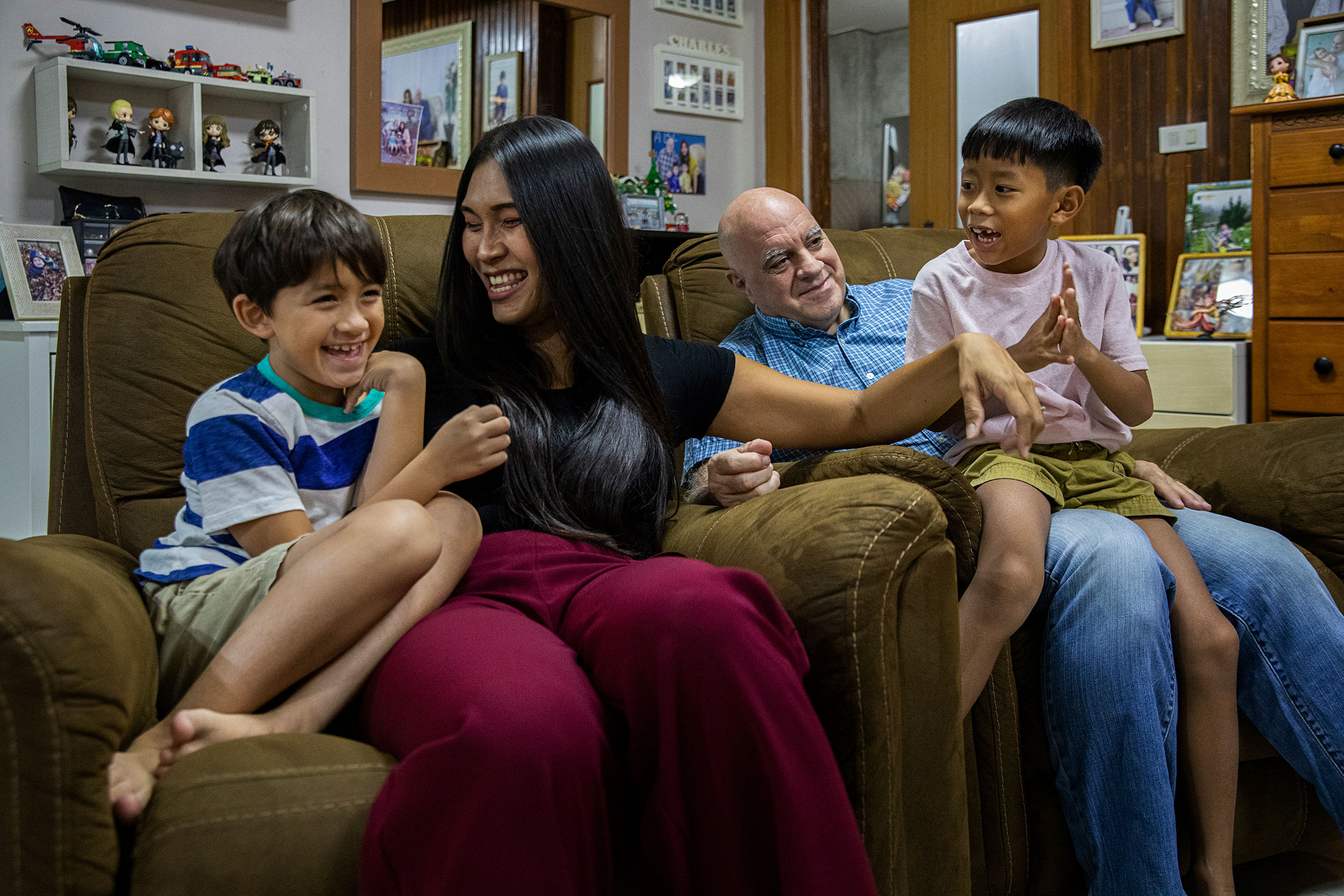Gina Milintanapa and Lee Battia are proud parents. Their oldest boy, Chene, 8, is a budding actor who regularly appears in television commercials. His 6-year-old brother, Charlie, is ranked number two in swimming for his age cohort in Thailand and recently recorded a time of 21.3 seconds for 25 meters. (Most adults, for comparison, would be happy with anything less than 20).
The two boys—adopted at birth in Thailand from separate biological mothers—are also learning piano and enjoy tearing up the soccer pitch. Little wonder the family home in Bangkok is festooned with many of the photographs of the boys that Milintanapa has amassed on her hard drives—three terabytes worth. “My mother says from now on she will only accept five-by-seven photos,” laughs Battia, 63, originally from Farmington Hills, Michigan. “There’s a lot of grandkids and great-grandkids and so she doesn’t have the wall space.”
Read More: How to Be a Trans Ally: Show Us We Can Trust You
But this loving, tight-knit family is not a family at all in the eyes of the Thai government.
Milintanapa, 39, from Bangkok, is a trans woman. She has been with Battia for almost 20 years and the two were married in the U.S. in 2019. But their marriage is not recognized in Thailand, where the couple live and where people of the same sex cannot wed, nor trans people. It also means that she and Battia can only adopt their children as individuals, not as a couple. Officially, Chene is Battia’s adopted child alone. Charlie is Milintanapa’s.
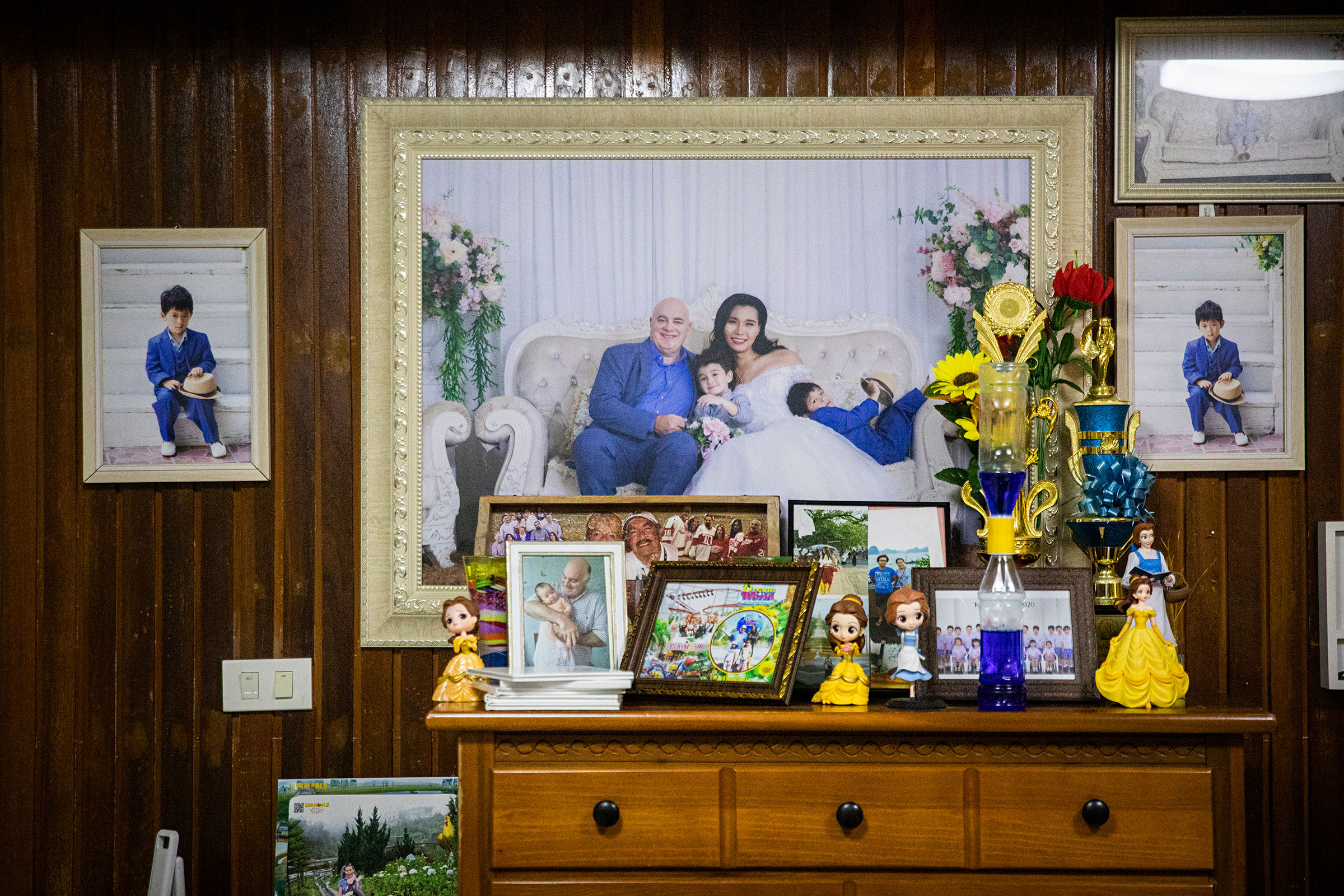
The two boys have different last names and no legal relationship. In the unfortunate event of a tragedy befalling one of their parents, the other parent will not automatically assume custody of both children. This legal status creates complications for inheritance, medical care, schooling and insurance claims. It also means the family must travel with a huge bundle of documents in preparation for the inevitable grilling from immigration officials.
“In Thailand, people think that only a [straight, cis gender] couple can raise a happy child,” says Milintanapa, who works at a software company with Battia. “But I think the world has changed and [most people] don’t have that attitude anymore. Anybody can raise a child if they are ready to take care of them.”
There are signs that Thai lawmakers are starting to agree. On June 15, they accepted four separate bills on same-sex and non-heteronormative unions into committee stage. However, the four bills offer vastly different levels of protections. Depending on the result, Milintanapa could potentially marry as a woman—her clear preference—or deny her gender identity, at least on paper, and marry as a legal man.
As each version is debated, Thailand’s LGBTQ+ community is desperate to ensure that this landmark opportunity isn’t hijacked by conservative elements and a watered-down version is passed. Not least since any bill must be approved by the Thai Senate—handpicked by the nation’s powerful military with a smattering of influential Buddhist monks—before the current government is dissolved ahead of general elections in March.
“This is not just about my rights,” she says. “This is the kids’ rights as well.”
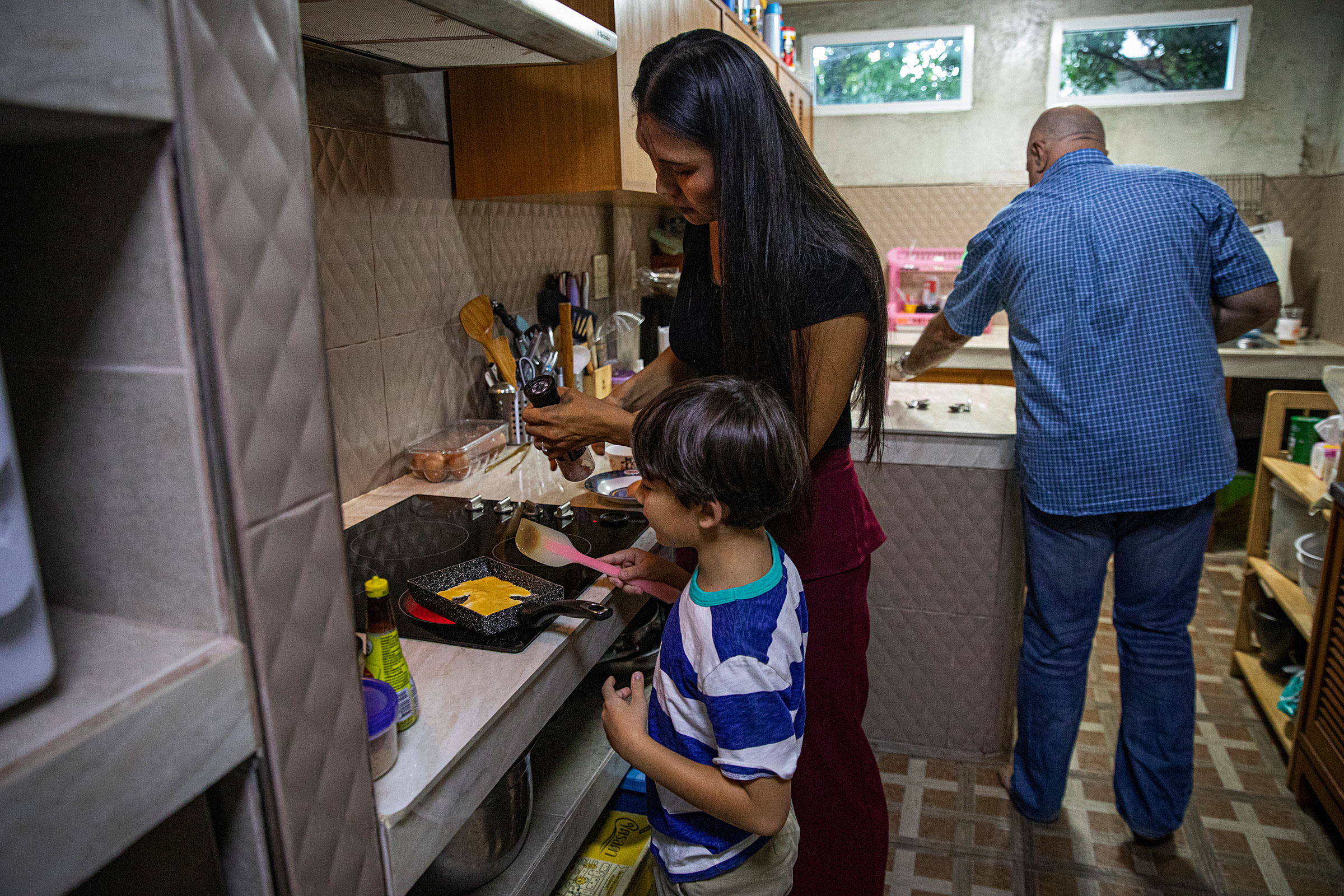
Hope for change
Thailand is known globally as an LGBTQ-friendly destination—a place of “ladyboy” cabarets and beachfront resorts all too ready to welcome the queer dollar. In June, Bangkok held its first Pride celebration in 16 years following support from the city’s new progressive governor Chadchart Sittiput
In the capital Bangkok, and other tourist hotspots, visitors remark on the prominence of gender-nonconforming people in the hospitality industry. Many visitors assume that such permissiveness carries through to the rest of Thai society.
Read More: Transgender Men See Sexism From Both Sides
But the truth is that queer people flock to sectors like tourism, entertainment, leisure, and sex work because they are frozen out of other fields. The Southeast Asian nation of 70 million is a pious, conservative country—most people are Buddhist and there is a large Muslim minority—and the LGBTQ community endures significant levels of discrimination. In Thai society, candidates who want to rise to boardroom positions are typically expected to be married and have children, since providing for others in a family setting is seen as a prerequisite for assuming a similar responsibility in a corporate context. Surrogacy and adoption services, however, are only available to “legally married” couples, and therefore not those of the same sex. According to a 2018 World Bank survey, 60% of transgender people, 30% of lesbians, and 20% of gay men in Thailand reported discrimination at work. More than half said they have had job applications rejected because of their LGBTQ identity.
Such anachronistic attitudes are increasingly out of step with norms elsewhere. When former British Ambassador to Thailand Brian Davidson, who is gay, arrived for his posting in 2016, his legal husband in the U.K. had to be registered as a “domestic servant” rather than spouse on his visa.
Activists hope the legislation under consideration can pull Thailand into a new era. Of four bills under consideration, two Cabinet-backed drafts would give LGBTQ couples “life-partner status,” potentially allowing them to adopt children together and sign legal papers authorizing medical treatment, and so on. (One draft creates this completely new legal status; the other amends Thailand’s Civil and Commercial Code—private law relating to property, family, and obligations—to include it.) A third draft proposed by the conservative Democrat Party is almost identical to the Cabinet “life-partner” draft with only minor differences.
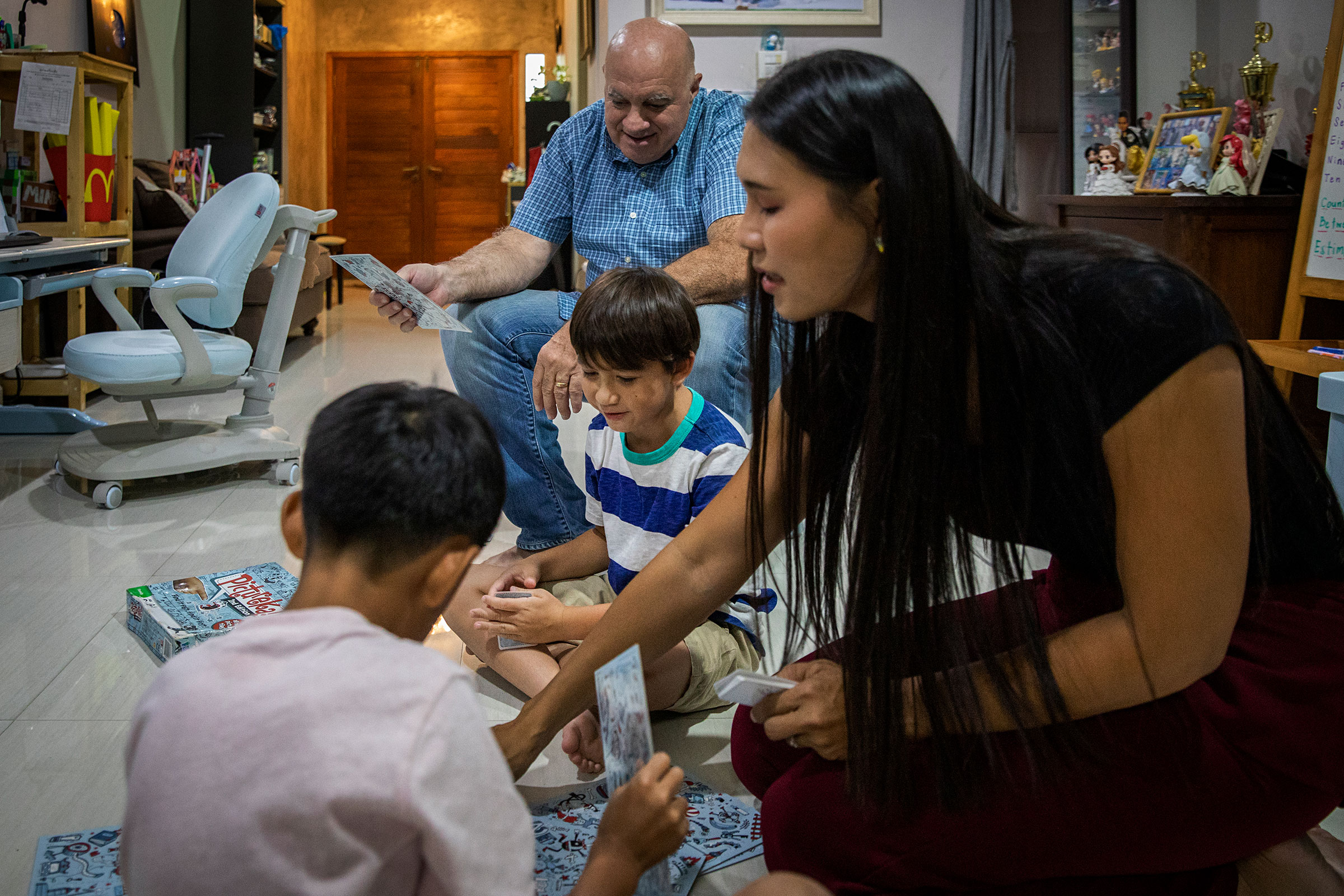
Of the four, only the opposition-backed Marriage Equality draft enshrines full marriage equality, aiming to fully amend the existing marriage portion of the Civil and Commercial Code by changing the words “wife” and “husband” for “spouse,” and “man” and “woman” for “person.” This would permit the legal union of same-sex couples or couples still viewed as “same-sex” by law. Such couples would be able to make use of surrogacy services, and be entitled to the same or similar family rights, social security benefits, tax-deduction privileges and other perks that people in gender-normative and heteronormative marriages have.
The bills are distinct though overlapping and it’s likely they would be consolidated after the details are debated in second and third parliamentary readings.
Read More: Fears About Transgender People Are a Distraction From the Real Struggles All Women Face
Thailand’s LGBTQ community has been here before: back in 2014, marriage equality activists told TIME that legal recognition “could happen within six months.” But momentum stalled amid disillusionment that early government-backed drafts were not truly inclusive.
It will be an uphill battle. But if it passes, Thailand will be only the second place in Asia after Taiwan to legalize same-sex unions, which did so in 2019. (The Taiwanese law, however, still discriminates against LGBTQ people who wish to marry foreigners, by only allowing them to marry foreigners from one of the roughly 30 countries where same-sex partnerships are legal.)
“We will try hard to ensure that the marriage equality bill is passed,” says Nada Chaiyajit, a prominent Thai LGTBQ+ activist and human rights lawyer. “We are in the middle of the storm.”
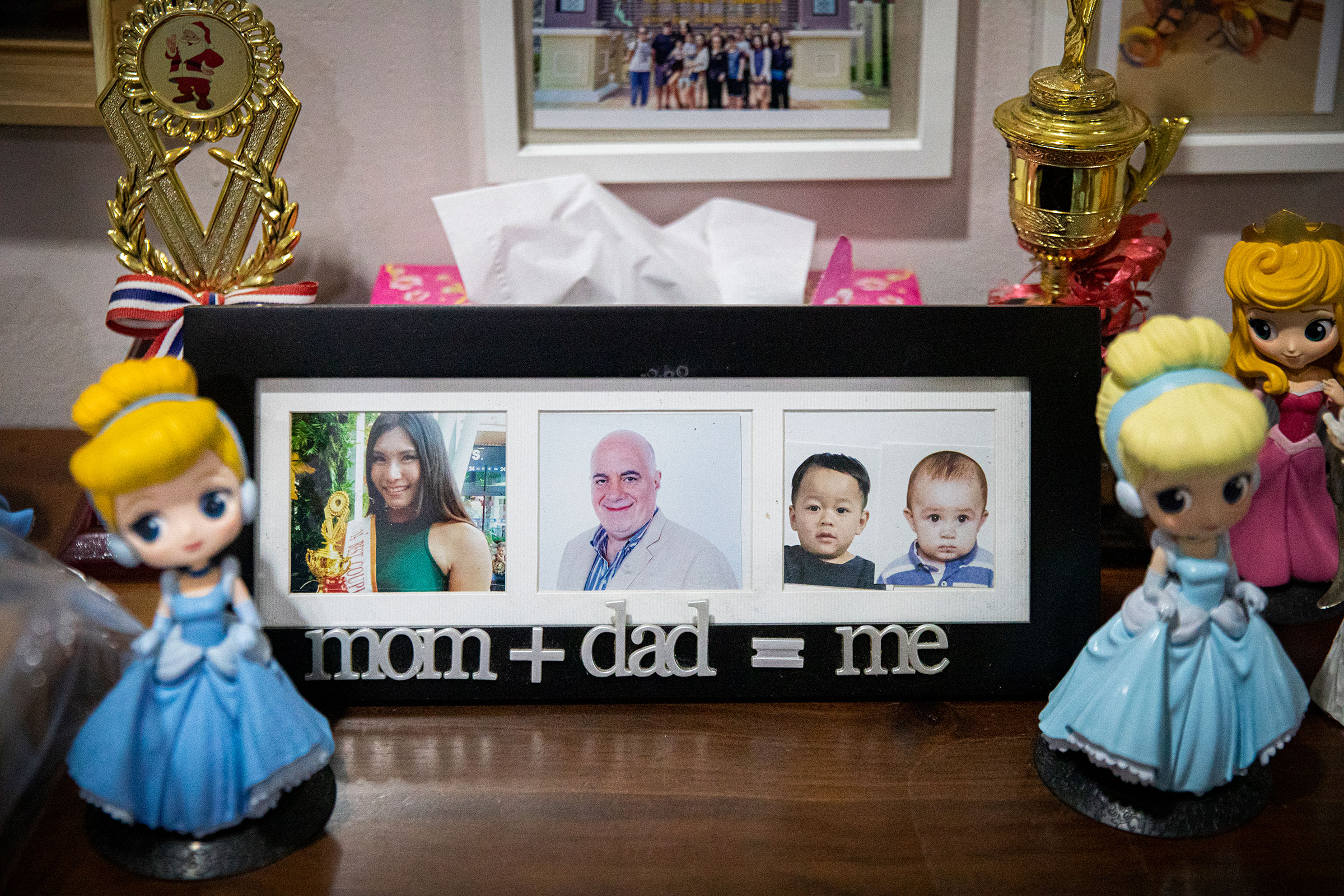
Discrimination against trans people in Thailand
Transgender people suffer a particular form of distress. Without legal recognition, they are forced to rely on official documents that undermine their gender identity and expression. The inconsistency creates enormous problems, with most institutions and employers insisting on treating trans individuals according to the gender they were assigned at birth. This can see trans women placed in male wards at hospitals, for example, and students bullied at university or school.
In a 2021 report by Human Rights Watch, a 25-year-old trans woman told the NGO that when she began wearing makeup to school, her teacher used slurs against her. “I was also beaten at school by teachers, and teachers would instruct the boy classmates to tease me,” she said.
The report found that “the absence of legal gender recognition, coupled with insufficient legal protections and pervasive social stigma, limits transgender people’s access to vital services, and exposes them to daily indignities.”
Kath Khangpiboon agrees. The co-founder of the Thai Transgender Alliance, and a lecturer at Bangkok’s Thammasat University, says: “Thailand does not allow people to be themselves. The idea that this society is open for everyone is not true.”
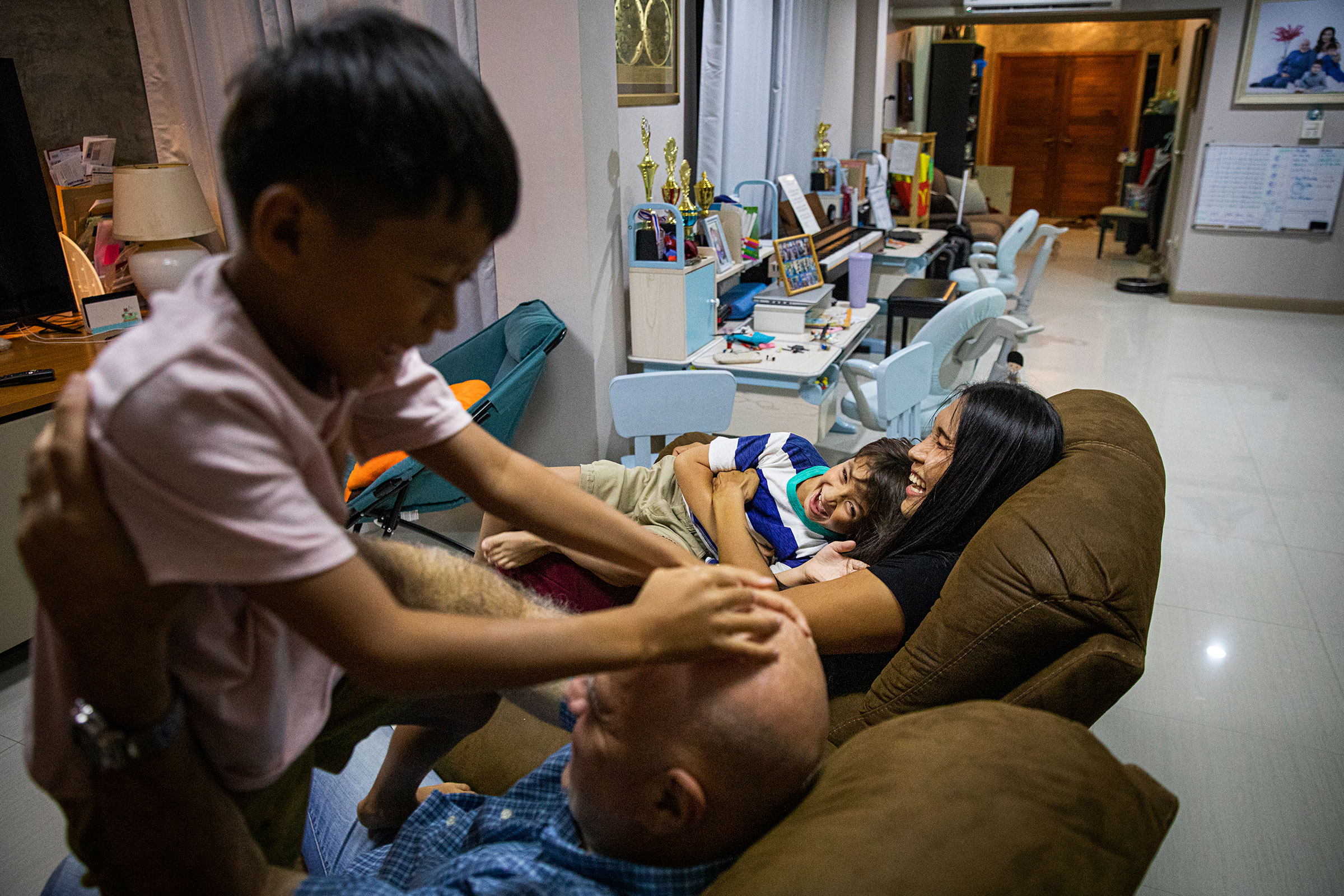
Khangpiboon has been working within education and media to change social attitudes for many years, with little success. Now she’s going for a top-down approach. “This time we have to work on the policy level,” she tells TIME. “It’s the right way to change attitudes to accept LGBT people in Thailand.”
Read More: A Family With a Trans Daughter Leaves Texas for a Better Life
Thailand did introduce the Gender Equality Act in 2015, but it has largely been a disappointment. The Act seeks to offer protection to anyone who is “male or female or expresses themselves differently from their inborn gender,” but the wording has been criticized by the trans community because it constructs trans people as individuals who merely express themselves “differently” from a fixed, natal gender, and not people whose personal experience of gender is at variance to the gender they were assigned at birth.
Nada tells TIME that government departments were told to implement the act. However, the act’s penalties only relate to specific infringements rather than systemic failings, so it has been easy for many departments to ignore it. “Without a mandatory function, it means that if someone would like to discriminate, it is fine,” she says.
Nada says she is constantly being referred cases of discrimination. One recent client is a young transgender girl who was instructed to cut her long hair by the director of her school. “This is how the lives of LGBTQ people typically are,” she says.
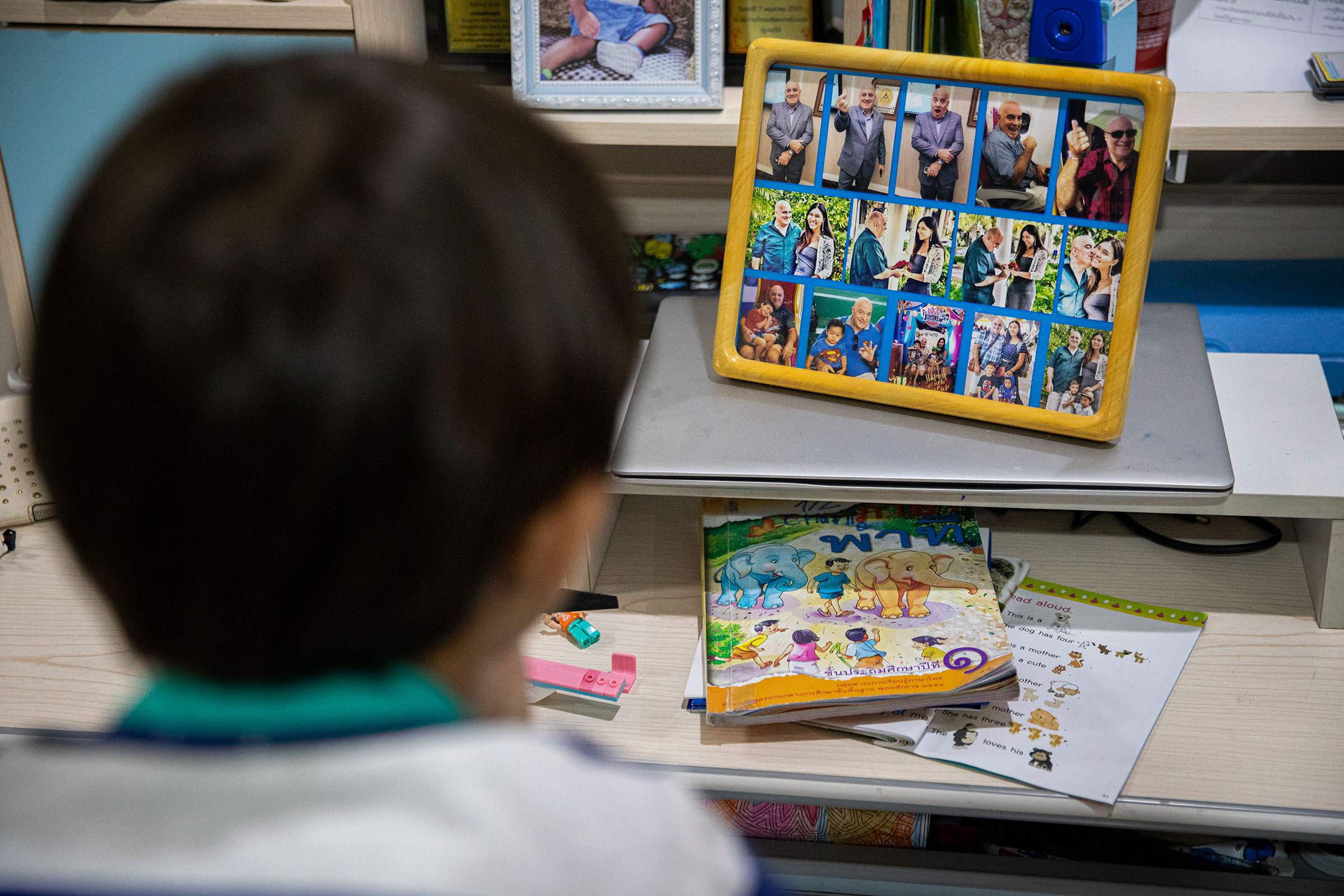
Recognition for Thailand’s LGBTQ families
For now, Milintanapa and Battia try to live as normal a life as possible, despite the uncertainties posed by their legal status or lack of it. The couple first met online back in 2003 but it took over a year later for Battia to make the trip to Thailand to meet in person. They immediately hit it off. “She was just a really open, easy person to be around,” Battia says.
After being told for years that adoption was impossible, they finally managed as individuals in 2014 and again two years later. Now, Milintanapa is a self-declared “tiger mom”—getting the boys ready for school, picking them up, taking them to after-school activities, preparing dinner and handling homework, all while holding down her own job. She even breastfed Chene (trans women can lactate with the help of over-the-counter medication). “I only produced two ounces in two months,” she says. “So I gave up because it was just too hard.”
She and Battia hope their U.S. marriage certificate can add some level of protection in the event of an emergency and also cement the family structure, which may become important to the boys as they get older.
“They’ve started asking questions,” says Milintanapa. “I just told them that they were born from [another] mother, but that it doesn’t matter who you were born from. We are just lucky that we are family.”
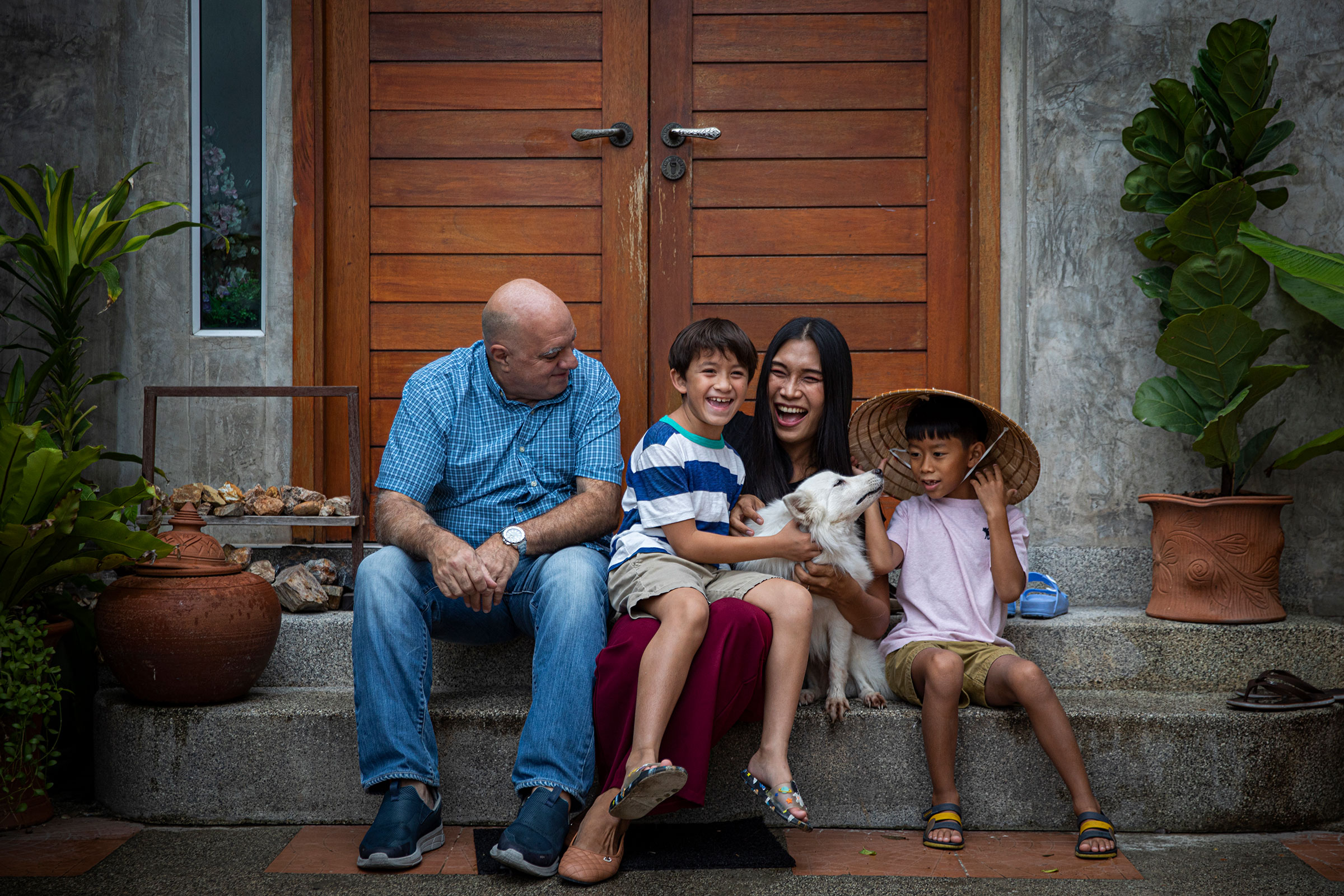
Despite the difficulties they encounter at immigration checkpoints, the family travels abroad often. This is not simply because they love visiting new places. As other families in their position will know, being able to show four passports with lots of matching stamps over time provides valuable evidence that they’re a close-knit unit.
Read More: A Year in Photos of Gender Expansive Youth Across the U.S.
Milintanapa’s hope now is that they won’t simply be regarded as a family when they’re on the road. They need recognition at home too.
“With or without paper, nobody is taking away my child,” she says. “I won’t stop fighting.”
More Must-Reads from TIME
- Cybersecurity Experts Are Sounding the Alarm on DOGE
- Meet the 2025 Women of the Year
- The Harsh Truth About Disability Inclusion
- Why Do More Young Adults Have Cancer?
- Colman Domingo Leads With Radical Love
- How to Get Better at Doing Things Alone
- Michelle Zauner Stares Down the Darkness
Write to Charlie Campbell/Bangkok at charlie.campbell@time.com
